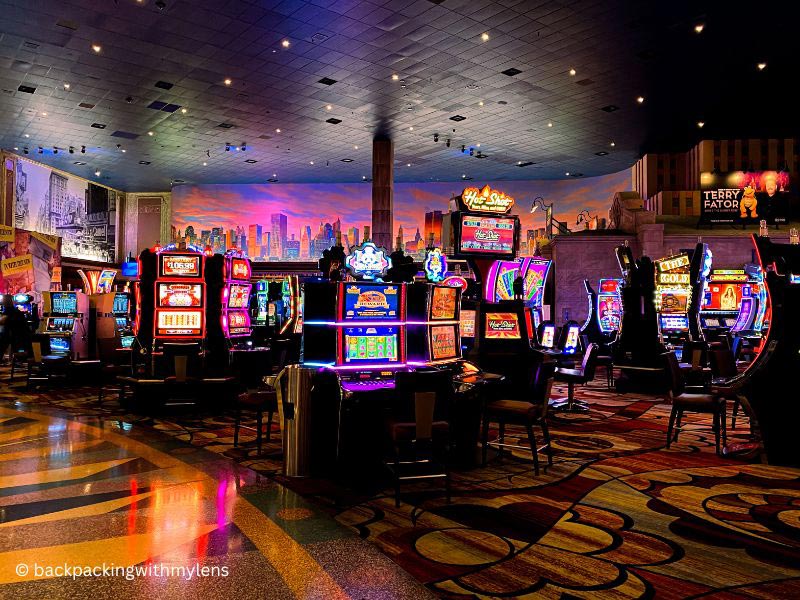Gambling in casinos has long been a subject of fascination and debate, attracting millions of players globally. With a mix of chance, strategy, and the thrill of risk, casino games offer an exhilarating escape from everyday life. However, as entertainment becomes ever more available, it invites a deeper examination of the morality surrounding these games.
At the heart of the discussion lies the issue of whether casinos promote safe gambling or take advantage of at-risk individuals. The appeal of potential winnings versus the truth of losses can create a challenging dynamic, and understanding this balance is crucial for both players and operators. As we delve into the ethics of casino gaming, we will explore the responsibilities of casinos, the effects on society, and the measures that can be taken to foster a healthier gaming environment. Ga179
The Impact of Casino Gaming on Society
Gambling in casinos has a notable influence on society, affecting not only the financial landscape but also social behaviors and local frameworks. The revenue generated from casinos can lead to employment opportunities and boost local economies, as they provide numerous employment opportunities in multiple fields including food and beverage, leisure activities, and shopping. However, while the economic advantages can be substantial, communities often struggle with the possible negative impacts that arise from increased gambling activity.
Moreover, the presence of casinos can lead to an increase in gambling addiction, presenting significant challenges for individuals and families. The thrill of casino games can quickly evolve into a habitual habit, affecting personal relationships and leading to financial instability. Many individuals may struggle with the loss of control over their gambling habits, resulting in a need for assistance programs and help to address this growing issue. The social cost of addiction can extend through kinships and neighborhoods, creating an urgent need for sensible gambling approaches.

In addition to the economic and social ramifications, casino gaming often showcases cultural attitudes towards risk and entertainment. It can foster a sense of joy and leisure, attracting tourists and boosting tourism. However, this allure may also mask the broader implications of gambling as a method of entertainment, raising ethical questions about its promotion and accessibility. As communities weigh the advantages and drawbacks of casino gaming, the need for responsible practices and oversight becomes increasingly critical in ensuring that the positive aspects are maximized while reducing the potential harms.
Ethical Concerns in Gambling Activities
The ethics of gambling operations often center around the risk for addiction and its effects on people and families. Gambling can lead to significant financial distress, impacting not only the gamblers but also their loved ones. As people become caught in the appeal of winning, many lose sight of their budget, which can result in devastating outcomes such as insolvency. This poses moral questions about the responsibility of gambling establishments in promoting safe gaming practices and offering support for those who may be struggling with gambling addiction.
Another critical concern is the advertising of gambling to at-risk groups. Gambling establishments often target low-income individuals or communities with the offer of fast gains, which can perpetuate patterns of financial struggle and despair. In this context, the ethics of advertising strategies used by casinos come under examination, as they may take advantage of the need of individuals seeking an escape from economic troubles. This exploitation raises ethical questions about the integrity of the gambling industry and its responsibility to safeguard its most at-risk patrons.
Additionally, the impact of casino operations on the community as a entirety cannot be overlooked. While some argue that gambling establishments create employment and boost local economies, others point to the social costs associated with dysfunctional betting, increased criminal rates, and a strain on public services. Balancing financial advantages with the risk for community issues presents a complex ethical dilemma for lawmakers and gambling operators alike. The challenge lies in discovering a ethical approach that prioritizes the well-being of people and communities while still permitting for the pleasure of casino activities.
Oversight Structure and Obligations
The oversight framework related to gambling operations is developed to ensure fairness, trustworthiness, and gambler safety. Multiple government agencies and gambling commissions create and implement regulations that dictate how casino activities operate, the guidelines for activity development, and the processes for processing rewards. These regulations vary by region but commonly involve permit requirements for operators and strict measures to stop fraud and dishonesty.
In addition to regulatory bodies, gaming establishments bear major accountability in upholding principled standards within their facilities. They must enforce safe gaming practices that support gambler protection and awareness, including providing self-exclusion options and offering information about the dangers associated with gambling. Establishments are also responsible for educating staff to identify signs of compulsive betting and understand the correct actions to assist visitors in need.
Furthermore, transparency in casino operations is essential for gaining and preserving public faith. Operators should offer clear details about the probabilities of activities, advertising opportunities, and any related dangers. By fostering an atmosphere of honesty and responsibility, casinos can help lessen the potential harmful impact of betting while improving the overall betting experience for all players.